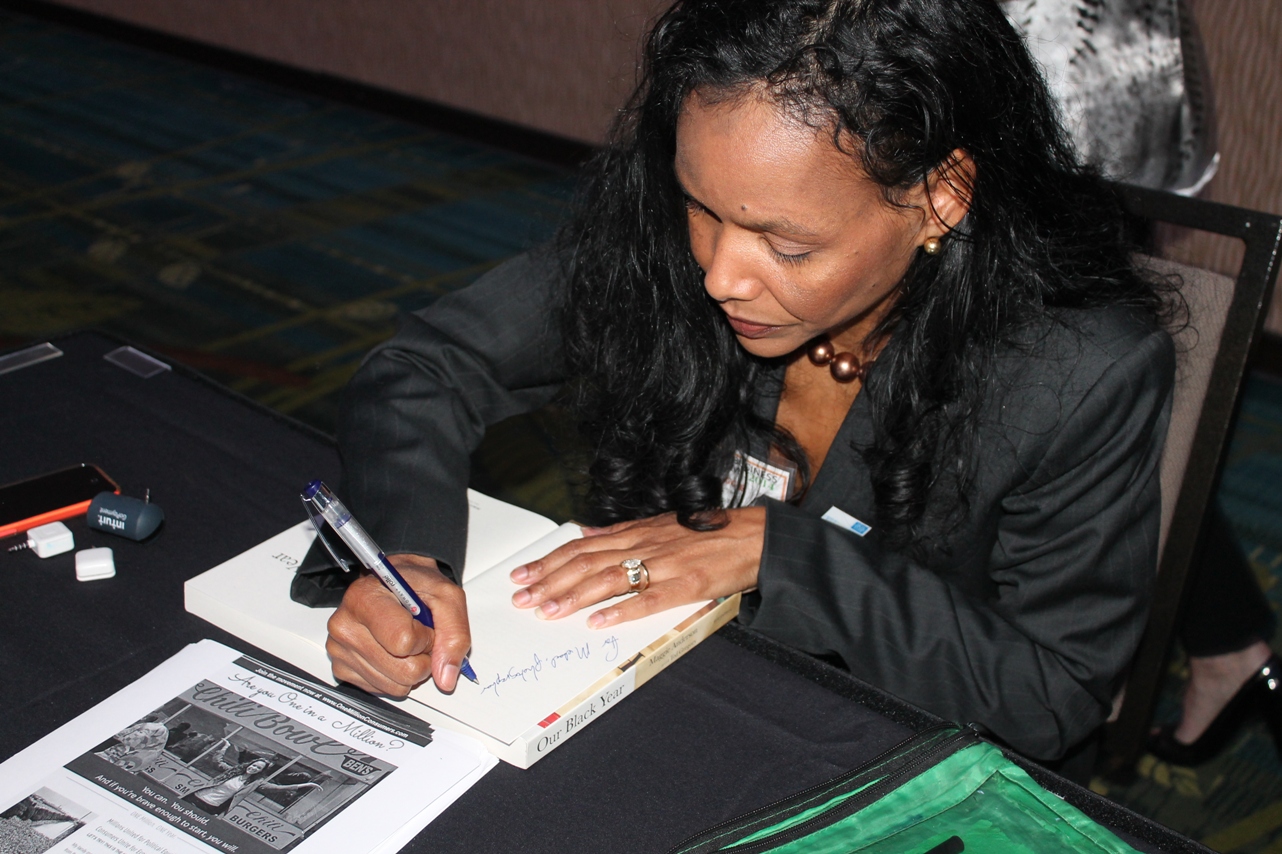
By Angela Holmes
CEDAR RAPIDS—Organizers of the 2014 Iowa Black Business Summit created exactly what they intended to – a plan for the future.
According to Diversity Focus Executive Director Chad Simmons, the Iowa Black Business Consortium was formed at the conclusion of the summit, held Sept. 21-22 at the DoubleTree by Hilton in downtown Cedar Rapids.
“We got the right people in the room in order to take us to the next level,” he said
Attendees of Iowa’s third summit included black business owners from Iowa City, Cedar Rapids, Dubuque, the Quad Cities, Waterloo and Des Moines. Those areas, as well as Sioux City, will be represented in the consortium. Partnerships will be formed over the next several months, Mr. Simmons said.
The mission of the consortium is to “inspire current and future business owners by connecting them to their customers.”
Mr. Simmons, a partner in the Iowa Soul Food Company, which owns Sweetiepies Chicken & Fish Fry in Cedar Rapids and is run by his wife, Carol Cater-Simmons, admits black-owned businesses in the Corridor are “light at the very core.”
“Our goal is to make the second largest city in the state (Cedar Rapids) one of the largest places of black-owned businesses,” he said.
Black-owned businesses are the key to generating wealth and reducing unemployment within the black community, Mr. Simmons noted.
“Black businesses are only going to survive if everybody supports them,” he said.
Maggie Anderson, keynote speaker at the Iowa Black Business Summit, discussed the findings of the Empowerment Experiment – a project in which she and her husband purchased goods and services from only black-owned businesses in the Chicago area for a year.
The experiment was an eye-opener for the professional couple who live in Oak Park, Ill., on the west side of Chicago, with their two daughters.
“In the black community, the single biggest problem is economic disparity,” she said. “Our hearts ached seeing up close what happens in poor black neighborhoods.”
Among the findings of the Empowerment Experiment reported in Ms. Anderson’s book, “Our Black Year”:
- Less than two cents of every dollar an African American spends in the United States goes to black-owned businesses
- White-owned firms have average annual sales of $439,579, compared to $74,018 in black-owned firms
- In black neighborhoods, a dollar circulates among banks, shops and other businesses for six hours compared to nearly a month in Asian American communities or 17 days in White protestant communities
“We should be ashamed,” Ms. Anderson said in her keynote at the summit. “It’s no one’s fault but our own.”
She encouraged the summit’s participants to support black businesses if even it means driving further or paying more for goods and services.
“When black business owners succeed, then America succeeds,” she said. “Let’s focus on economic rights, not just civil rights. We’re America, too.”
Ms. Anderson is developing Maggie’s List, a mobile app that will list black-owned businesses throughout the country. The app, available at www.maggieslist.com, should be available by the end of November.
By the numbers
In Iowa, The 2014 Greater Iowa African American Resource Guide, compiled by the Iowa Accountability Program, lists black-owned businesses in Ames, Cedar Rapids, Davenport, Des Moines, Dubuque, Fort Dodge, Iowa City, Sioux City and Waterloo.
According to the guide, the African-American population of Cedar Rapids is 7,940, or 6.2 percent of the city’s 127,503 total population. Iowa City’s African-American population is 3,841, or 5.6 percent of the city’s total population of 69,103.
Also according to the guide, Des Moines has the state’s highest African-American population in 2012 with 21,646 residents. Waterloo has the highest percentage of African Americans with 10,297, or 15.1 percent of its total population of 68,361.
A report released in February by the State Data Center of Iowa and the Iowa Commission on the Status of African Americans, showed that 3.2 percent of Iowa’s population in 2012 was African American, including 19,5537 African-American families.
The median income for African-American households in Iowa in 2012 was $27,373, according to the report. Top occupation types for Iowa’s African-American workforce are education/health/social services (28.5 percent), manufacturing (17.5 percent) and arts/entertainment/recreation/food services (15.5 percent).




